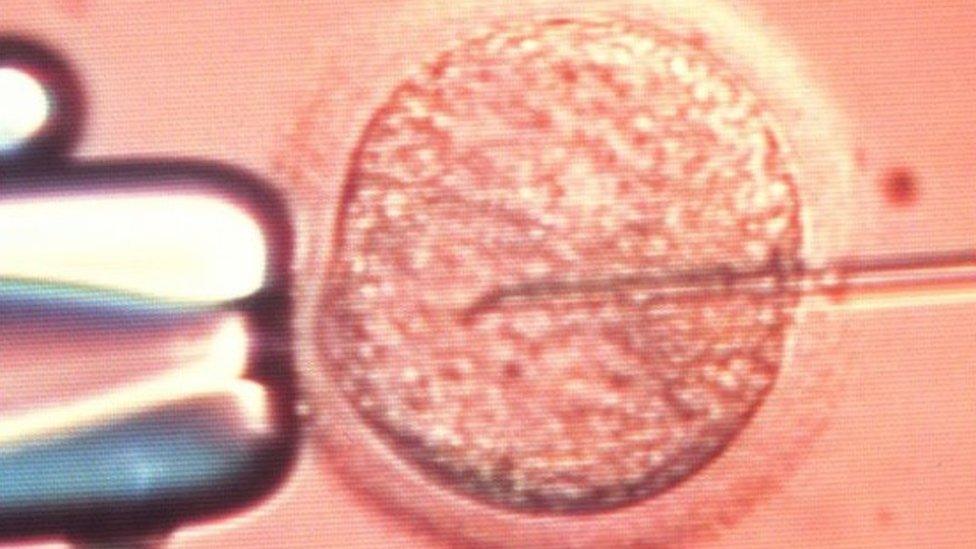Dutch IVF centre probes suspected sperm mix-up
- Published

The Utrecht University Medical Centre blamed a "procedural error"
A Dutch IVF treatment centre has said that 26 women may have been fertilised by sperm from the wrong man.
The Utrecht University Medical Centre said a "procedural error" between April 2015 and November 2016 was to blame.
Half of the couples who underwent treatment are pregnant or have already had children. They have been informed, the medical centre said.
"The UMC's board regrets that the couples involved had to receive this news," the centre said in a statement.
The statement said: "During fertilisation, sperm cells from one treatment couple may have ended up with the egg cells of 26 other couples.
"Therefore there's a chance that the egg cells have been fertilised by sperm other than that of the intended father."
Although the chance of that happening was small, the possibility "could not be excluded," the centre added.
What went wrong?
The UMC carries out between 600 and 700 ICSI procedures every year
The technique at the centre of the mistake involved a single sperm being injected directly into a woman's egg with a pipette. It is called Intra-cytoplasmic sperm injection (ICSI) and differs from in vitro fertilisation.
From April 2015 to November 2016, one of the lab technicians is believed to have used an inappropriate pipette to inject the sperm.
Although the pipette was changed each time, the technician used the same rubber top until he found traces of sperm in it and raised the alarm. The rubber top would normally have a filter, but in this case it did not, a hospital spokesman told the ҙуПуҙ«ГҪ.
Of the 26 couples involved, nine have had children and four women are pregnant. The other 13 embryos were all frozen.
All the couples are due to meet doctors from the centre in the coming days and will be offered the option of a DNA test.
The UMC carries out up to 700 ICSI procedures every year.
Dutch fertility support group Freya reacted with shock to the news. "Wanting a child is a very delicate thing, especially when it doesn't involve the normal bedroom way. So people need to have 100% confidence in the method they adopt," it said.
In 2012, a Singapore mother sued a clinic after it mixed up her husband's sperm with that of a stranger.
The woman, who was ethnically Chinese, suspected something was wrong when her baby had markedly different skin tone and hair colour from her Caucasian husband.
- Published17 November 2016
- Published8 June 2016